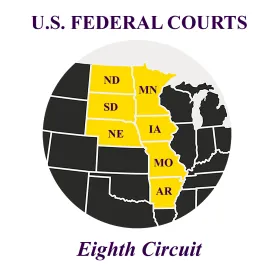Commercial general liability (“CGL”) policies protect the policyholder against property damage caused by an occurrence. Where the policyholder is sued for breach of contract and related claims because of shoddy design and construction issues, do those claims come within the scope of coverage as an occurrence? The Eighth Circuit Court of Appeals recently addressed this issue under Missouri law.
In American Family Mutual Insurance Co. v. Mid-American Grain Distributors, LLC., Nos. 19-2050, 19-2171 (8th Cir. May 12, 2020), the insured and another party entered into an oral contract for the insured to design and construct a grain storage and distribution facility. Things did not go well and the purchaser terminated the contract.
The insured sued for breach of contract. The purchaser counterclaimed for breach of contract, breach of implied duties of workmanship and performance and for negligence all arising out of design and construction issues. The insured sought coverage for the counterclaims and the insurer provided a defense under a reservation of rights. Subsequently, the insurer brought this declaratory judgment action seeking a finding of no coverage for the counterclaims and, therefore, no duty to defend or indemnify. The district court granted summary judgment to the insurer.
In affirming summary judgment, the court noted that the only issue on appeal was whether the counterclaims alleged damages caused by an occurrence so as to come within the scope of the coverage under the CGL policy. The policy defined “occurrence” as an “accident,” but “accident” was not defined in the policy. Under Missouri law, “accident” takes on its common meaning as an event that takes place without one’s foresight or expectation. In other words, a fortuitous event, not one that is a foreseeable consequence of the actions.
The court went on to discuss the standard that should apply to determine if the damages were foreseeable: objective (a reasonable insured) or subjective (this insured). The court found that there was a split of authority, but concluded it did not have to pick sides in that debate.
Instead, the court determined that Missouri law required that foreseeability be inferred as a matter of law in this case. The court discussed how a CGL policy is not a guarantee of technical competence or a warranty of goods or services. The court pointed to Missouri case law (citations omitted) finding that damages are a natural and normal consequence of shoddy workmanship or defective construction. Accordingly, damages resulting from shoddy workmanship are not unexpected or accidental and, therefore, cannot be an occurrence.
The court held that the insured’s alleged defective construction work was not an occurrence. The court inferred, as a matter of law, that the insured had the requisite state of mind precluding coverage because the damages resulting from the insured’s acts were the natural and probable consequences of those acts. Thus, normal and expected damages of shoddy workmanship are foreseeable or expected as a matter of Missouri law, meaning the work is not an “accident” when resulting in those damages (citations omitted).
The court also rejected all the arguments in favor of coverage, including the argument that one of the counterclaims was for negligence, a claim normally covered by a CGL policy. Here, the court said that because the damages caused by the allegedly shoddy work were foreseeable as a matter of law, the work was not an “accident” no matter how it was characterized.
Because there was no occurrence there was no coverage and, therefore, no duty to defend, held the court.




 />i
/>i
